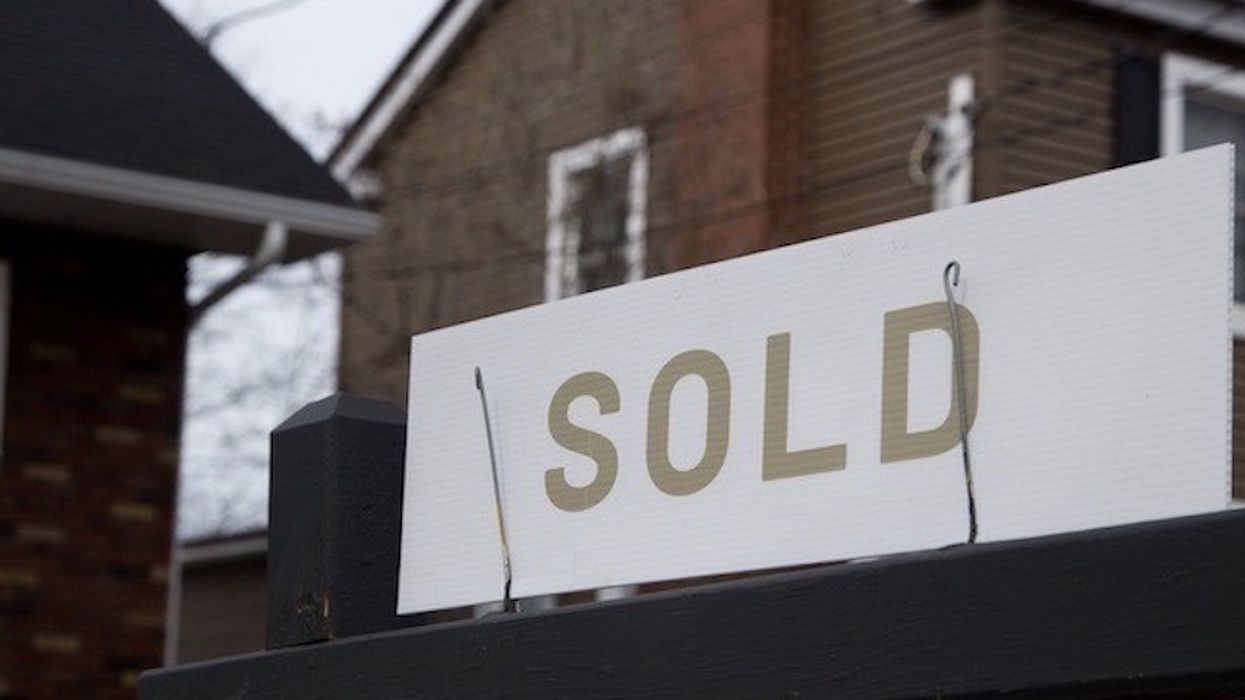As interest rates rise and home values continue to decline, worries about buyers refusing to close on deals have become increasingly common. But John Lusink, President of Right at Home Realty, says it may not be as prevalent of a problem as some may think.
Those in the industry, from real estate lawyers to mortgage brokers, have reported seeing an increasing number of buyers backing out of deals months after having their offers accepted and deposits submitted. In these instances, buyers typically back out for one of two reasons: either the declining value of the house no longer matches the amount the buyer offered months ago, meaning they can't secure financing for the full price, or they would rather walk away and lose their deposit than go through with the purchase of a depreciating asset.
But in an analysis of Right at Home Realty's transactions year to date, Lusink found that less than 1% of deals involved a buyer who refused to close.
"Certainly the errors and omissions insurance and Real Estate Counsel, as I'm speaking with them, they have reported an increasing volume, but under our brand, at the moment, it's not significant enough to say there's a huge problem," Lusink said.
A Canada-wide analysis of this behaviour has not yet been carried out, but a recent report from Redfin that looked as US home sales, the real estate brokerage found that home buyers had backed out of 16.1% of pending home sales, the highest share since March or April 2020, when 17.5% and 16.3% of deals fell through, respectively.
The most recent sales data from the Canadian Real Estate Association revealed a 22.8% decline in home prices from the February peak to July, with pricey Ontario markets being hit the hardest. When buyers do back out, it's often because the amount they offered months ago is higher than the current valuation, and with banks only lending on the lower of the two numbers, buyers are stuck having to pay the difference up front.
This, combined with rising interest rates that have bumped up the stress test needed to qualify for a mortgage, have left some buyers unable to secure all of the financing needed to go through with the purchase of a home.
"If people have gone past their guaranteed timeframe that they were able to lock in a rate, suddenly buyers are struggling to qualify," Lusink said. "So really, a lot of this is to do with the market conditions suddenly having changed."
Another issue Lusink has observed is that buyers who are considering backing out often aren't fully aware of the consequences they could face. Not only will they almost certainly lose their deposit -- typically 5% of the purchase price -- but they could be taken to court by the sellers who have now been left trying to sell their home in a cooler market, inevitably for a lower price, and they can be on the hook for the difference.
"You are entering into a significant legal contract that has repercussions if you change your mind," Lusink said. "There are cases highlighting some of the costs involved and they're significant. It can be quite shocking. But I put the onus on us as realtors, we need to do a much better job of informing customers of how this all works."
In fact, Lusink's top tips for buyers to avoid a situation like this is to make sure you get approved for a mortgage in advance, and choose a realtor who is well-informed, will ask the right questions, and can guide you through the process.
"Treat it like a job interview, get their CV, find out what kinds of transactions they've done, and what kind of markets they worked in, because there's a whole slew of realtors who got into this business in the last 10 years who have never known a down market," Lusink said.
On the seller's side, Lusink says a good realtor who will ask the right questions about the buyer is key.
"Make sure that the buyer has sufficient funds, is putting down sufficient funds as a down payment, and find out a bit about them," Lusink said. "Are they employed? How long have they been employed? Are they approved? And, you know, pre-approval is nothing more than simply [the lender saying] 'Yeah, we think we could approve you for a $500,000 mortgage,' so that's not the same as getting an actual approval."
Looking forward, Lusink says there are still likely going to be buyers backing out of deals, but definitely not en masse.
"I think through the summer, which is typically our our busy closing time, we'll continue to see some of this, but again, I'm cautious of calling it a significant issue," Lusink said. "In terms of numbers, at this stage, I haven't seen enough yet to be able to say 'Oh, boy, this is a real big issue.' I haven't seen the data to support that."





















